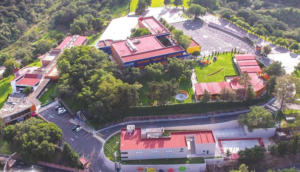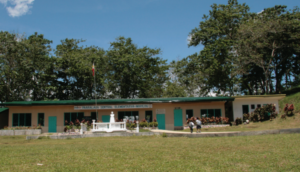Improving Digital Resources for the Educational Community in Panama
Despite notable achievements in the past decade, Panama’s education sector has been facing several challenges. Significant disparities exist between urban and rural schools, and the number of enrolled students has increased in Panama, adding pressure to the country’s already limited educational infrastructure. In many schools, conditions are less than ideal: access to potable water and electricity is a concern, especially in rural areas. Electricity is available at 67% of primary schools and 84% of pre-middle and middle schools. Although the percentage of students with access to a computer is relatively high (MEDUCA – Ministry of Education – distributed 183,000 laptops to students), internet access is lower (20% and 27%, respectively).
Aware of this reality, a large number of improvements have been made: books, technological equipment and potable water were distributed to schools in rural environments, and a curriculum reform was introduced, contributing to the standardization of education across the country. The inclusion of digital technologies in teaching and learning processes was also a priority: MEDUCA and Edupan have developed a project in partnership with Critical Links with the goal of improving digital resources for the educational community in Panama.
EDUPAN helps teachers and instructors to transform traditional pedagogical methods through the inclusion of technology, giving their students the ability to face the challenges of the 21st century, while MEDUCA has outlined their purpose to ensure an educational system of excellence that leverages technology, improving knowledge, learning, and outcomes.
This project was implemented in schools located in remote zones (rural areas or coastal zones) where internet access is only possible using satellite. The long trip that needs to be made to reach those schools is a constraint for both teachers and students, and it makes the implementation of technological projects in those areas very difficult. Many of those schools only have power through solar panels, making the installation of communication equipment a challenge.
The C3 Micro-Cloud and its low energy consumption made it possible to offer educational resources without having to change the underlying infrastructure of the schools.
We spent some time with Ariel Medina from Edupan, Panama, who gave us an overview of our project with MEDUCA and how it changed people’s lives in Panama. He told us that the main benefit the C3 Micro-Cloud brought to those communities was that it enabled access to updated educational content, research resources, and the experience of having local access to materials typically only found on internet sites.
“Teachers across Panama are working so hard to allow their students to have a better education. Some of them walk for hours to school, travel rural roads where cars can only go to a certain point and follow the rest of the path by horse, or even reach the school by boat. Imagine how difficult it is for those teachers to have time to prepare their classes or find ways to motivate students,” said Ariel Medina.
“Many of these Panamanian schools have fluctuating internet connections, while others don’t even have that level of service. The solution that those schools needed was a simple, fast platform that could be easily installed and provide an internet-based learning experience even without a stable, live connection to the internet. Now they have that,” he said.
The optional battery guarantees the operation of the equipment itself in places without power. With C3 Micro-Cloud, students and teachers now have access to a digital curriculum, lessons, and other resources tailored to their profile. They can easily connect directly to the C3’s Wi-Fi from any smart device and, through the LMS, teachers can explore deeper learning features and monitor students’ progress.
This project (with Edupan and Critical Links) is helping teachers give their students access to more interactive classes with richer content and resources. It also enables students in remote or rural areas to access high-quality content and materials that might not be available otherwise. Teachers had the opportunity to participate in C3 Micro-Cloud training, learning how to use the C3 Micro-Cloud to better share knowledge not only with students but also with their school colleagues. Students can now research, create, communicate, and collaborate in ways that better prepare them for the world, the workforce, or higher education.
500 schools were impacted by this project. Some of them can only be reached by boat, while others require walking for more than four hours to get there. Panamanian students and teachers in remote areas now have the opportunity to access internet-based resources in a secure and immersive way. In addition, they also have access to more engaging resources, such as videos about different subjects that complement their theoretical classes.


